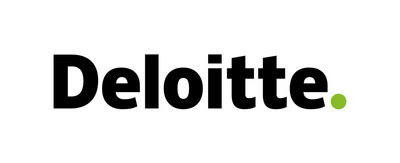LONDON, Oct. 31, 2022 (GLOBE NEWSWIRE) — Emerging Markets Global Advisory LLP (EMGA) for the second time working with Banco Improsa, secures this US$20M facility from the Spanish Agency for International Development Cooperation (AECID) – AECID (advised by COFIDES).
Commenting on the transaction, Felix Alpizar, General Manager of BANCO IMPROSA, said: “Banco Improsa is very honored to be recognized by AECID and COFIDES for both its track record and programs to finance and support Costa Rican micro, small and medium-sized enterprises (MSMEs). With this credit we will continue our contribution to the economic and social development of the country.”
EMGA’s Head of Investment Banking Sajeev Chakkalakal said, “A pleasure again to facilitate Banco Improsa’s continued vision of supporting SMEs within Costa Rica and complete this funding solution with AECID (advised by COFIDES).”
José Luis Curbelo, chairman and CEO of COFIDES, stated that “we are pleased to support AECID in its first impact project with EMGA and IMPROSA in the Central American region. The transaction will be used to finance small and medium enterprises in Costa Rica, which will contribute to the creation and maintenance of quality jobs and reducing inequalities. We look forward to continuing these strategic partnerships, which enhance economic growth in developing countries by strengthening the private sector through sound financial support.”
Carlos Jiménez Aguirre, General Manager of FONPRODE and Head AECID’s Financial Cooperation Department expressed that “the formalization of this transaction reflects Spanish Cooperation’s aims to contribute to expand the financial support for Costa Rican micro, small and medium-sized enterprises (MSMEs), as MSMEs play a key role in creating and maintaining decent jobs and reducing inequalities. Our intention is to expand this kind of support to other Central American countries in providing access to finance to MSMEs, with a special focus on mainstreaming gender and climate change strategies in private sector activities.”
Emerging Markets Global Advisory LLP, based in London, helps emerging market based financial institutions and corporates seeking new debt or equity capital.
Banco Improsa was founded in 1995 and is a niche bank with a specialization in providing financial solutions and services to MSMEs, which account for most of its portfolio. It has an extensive track record in providing support and advisory services to MSMEs. Banco Improsa’s key success factor lies in its commitment to high standards of personalized, agile, and flexible service, which, together with customized financial solutions, have enabled it to achieve a solid position in these segments. Banco Improsa is part of Grupo Financiero Improsa (GFI).
Fund for the Promotion of Development (FONPRODE), managed by Spanish Agency for International Development Cooperation (AECID) with the support of COFIDES (Spanish Development Finance Institution). AECID is the main management body of Spanish Cooperation and is oriented towards the fight against poverty and the promotion of sustainable development. COFIDES provides support management for FONPRODE with reimbursable financing operations that promote social and economic development of partner countries through investments or transfers of economic resources with a reimbursable nature. FONPRODE may finance non-reimbursable and reimbursable debt and equity. Examples of refundable financing offered by FONPRODE are loans to financial service providers aimed at financial inclusion.
COFIDES, a state-owned company engaging in the management of State and third-party as well as its own funds, pursues several aims; internationalization of Spain’s economy, furtherance of economic development and fortification of the solvency of companies affected by COVID-19. In addition to the Spanish State, its shareholders include Banco Santander, Banco Bilbao Vizcaya Argentaria (BBVA), Banco Sabadell and Development Bank of Latin America (CAF).
Jeremy Dobson
GlobeNewswire Distribution ID 1000753987

